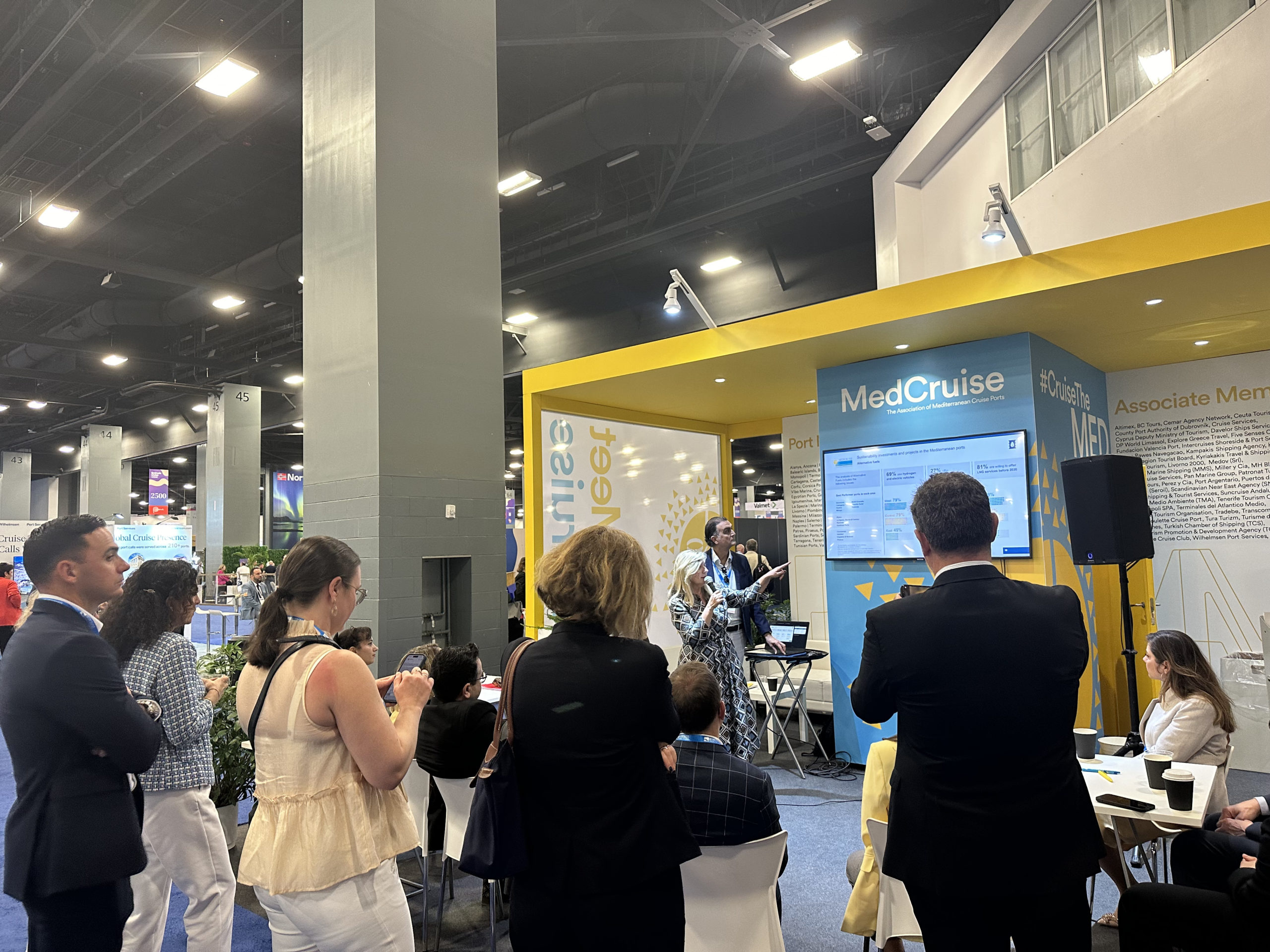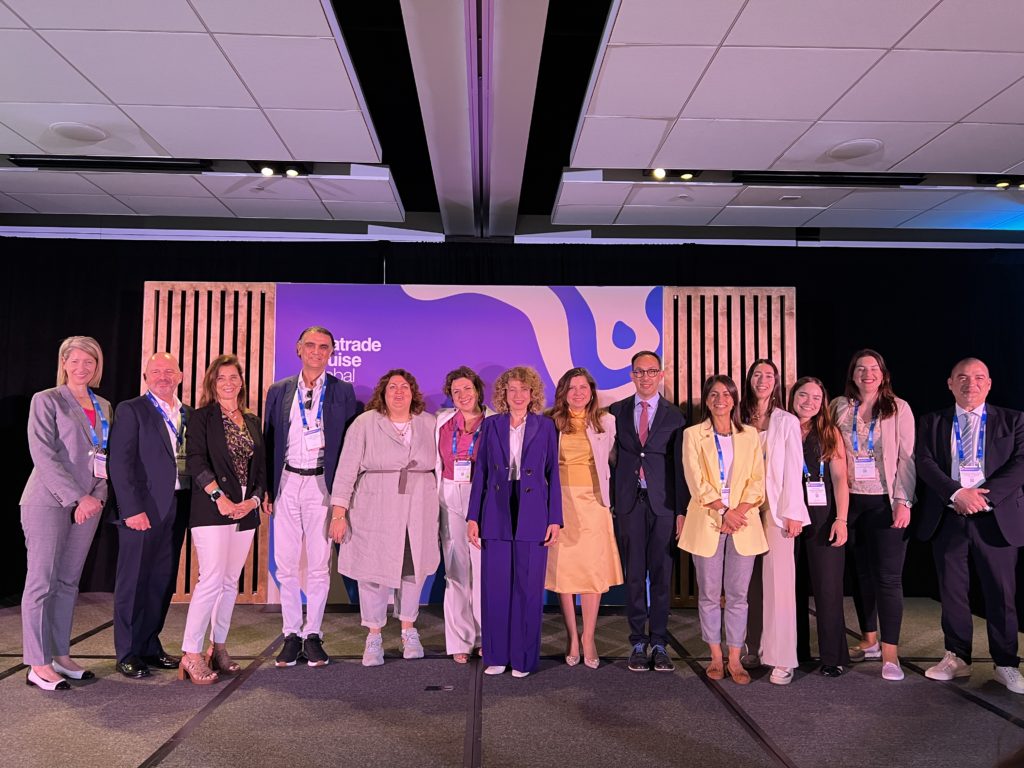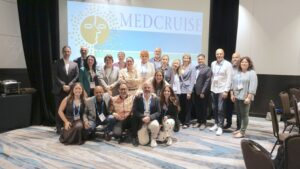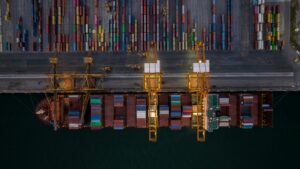During Seatrade Cruise Global, the President Figen Ayan has presented the latests data confirming the Med as the second largest cruise market in the world.
Miami, FL, 9th of April, 2024 – MedCruise made a significant impact during Seatrade Cruise Global 2024 in Miami on April 9th and 10th through various events: Figen Ayan led the “Trends in the Med” presentation, while Valeria Mangiarotti and Jamil Ouazzani presented survey findings on Mediterranean port sustainability.
Figen Ayan, President of MedCruise, took the stage on April 9th, at Seatrade Cruise Global 2024 in Miami to address key developments and trends within the cruise industry, focusing on both global and Mediterranean perspectives.
During the first half of the conference, Figen discussed the global trends shaping the cruise industry, particularly highlighting the major sailing regions and dominant cruise lines by market share during 2023 and 2024. She further examined trends specific to the Mediterranean and its surrounding regions: the Canary Islands, Trans-Atlantic and Red Sea. Figen also dedicated significant attention to analysing the evolving trends specific to MedCruise ports.
Notably, it was highlighted that the Mediterranean and its adjoining seas retain its position as the second-largest global cruise market, capturing a 21,5% market share and accommodating more than 7 million passengers. The region has returned to pre-pandemic levels, witnessing a 6.59% increase in passenger calls and a 7.91% rise in cruise calls in 2023 compared to 2019. Additionally, it is worth noting that all major cruise lines maintain their presence in the Mediterranean and its adjoining seas.
In the second half of her presentation, MedCruise’s President, addressed initiatives undertaken by MedCruise under her leadership, from 2021 to 2024. She emphasised the importance given during the mandate to fostering connections within the industry through activities and events organised by MedCruise, such as morning coffees, PDCs, General Assemblies and other events that facilitated networking opportunities among members, cruise lines, executives and media representatives. MedCruise’s commitment to promoting a holistic sustainability approach within the industry was also highlighted, mentioning various projects and initiatives led during her mandate. As the cruise industry continues to navigate new challenges and opportunities, MedCruise remains pivotal in fostering connectivity, networking opportunities and sustainability.
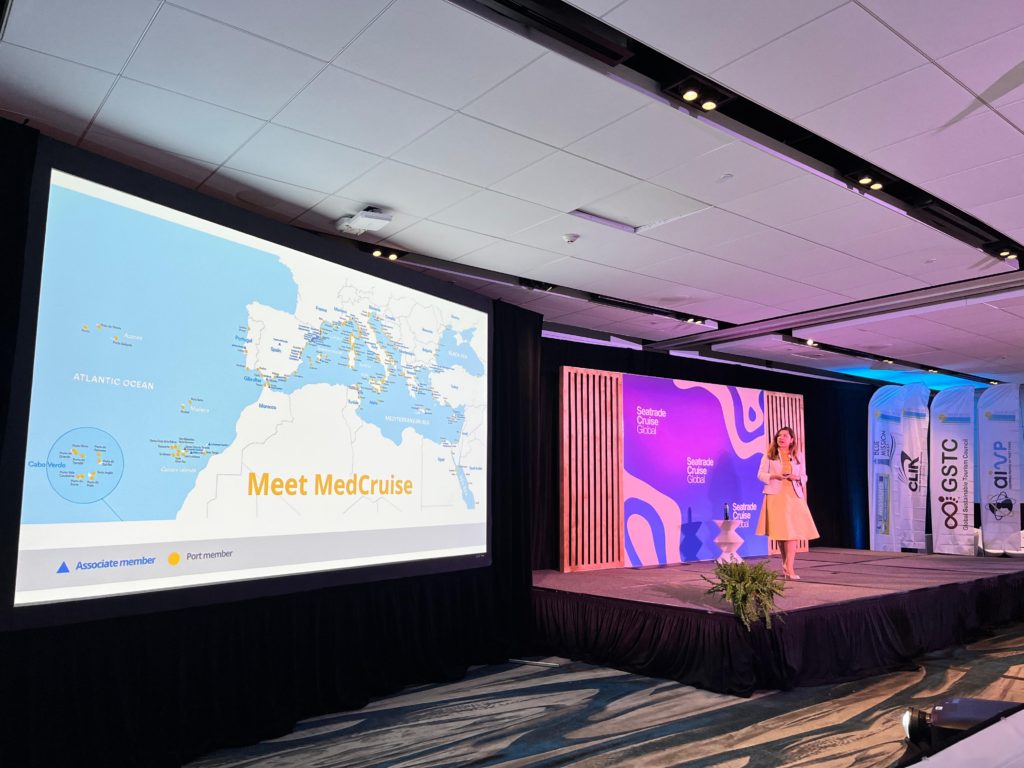
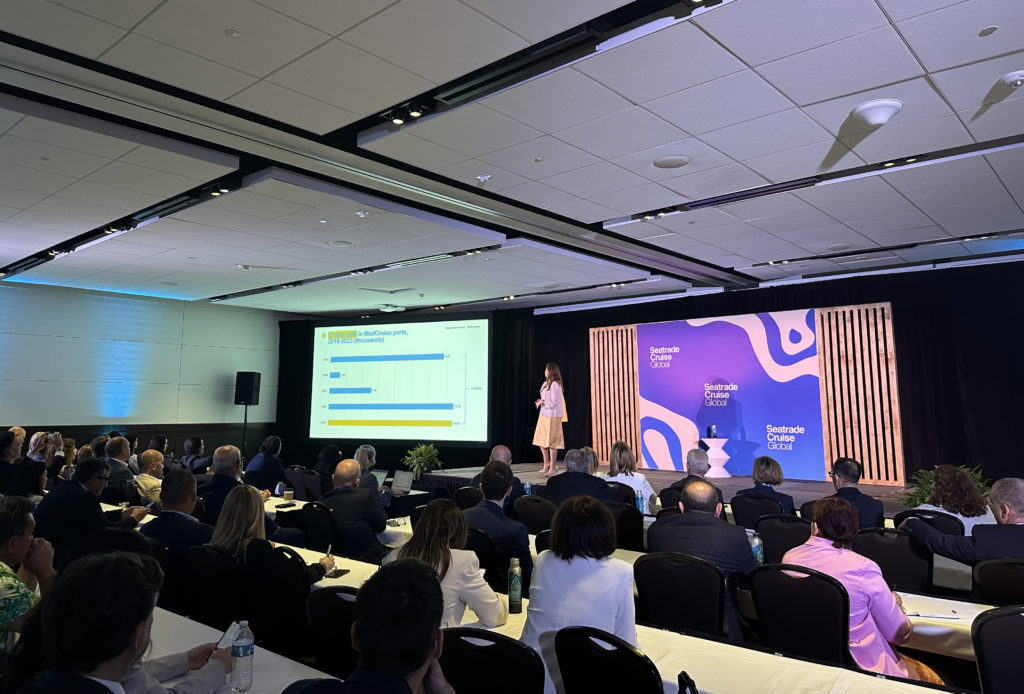
MedCruise’s participation in Seatrade Cruise Global 2024 also included the presentation on April 9th of Valeria Mangiarotti, Technical Environmental Solutions Director, and Jamil Ouazzani, Ecosystems, Sustainability, Wildlife & Biodiversity Director, on the findings of the survey on Mediterranean port sustainability.
This survey, in which 51 Mediterranean ports took part, focused on the development of Environmental Monitoring Programs projects, Onshore Power Supply projects, port footprint evaluation, CSR and socio-economic impacts, as well as the availability of alternative fuels.
The survey aims to provide an overview of the situation in MedCruise member ports concerning the protection of the environment and biodiversity, as ports around the world are under increasing pressure to safeguard and maintain the integrity of their ecosystems, not only by reconciling port development and environmental protection but also by seeking to ensure positive relations between communities and ports.
Key findings from this survey reveal that 29% of Mediterranean ports currently provide Onshore Power Supply (OPS) for cruise ships, with 94% of non-providers expressing readiness to offer OPS before 2030. Additionally, 27% of these ports offer LNG bunkering and 81% intend to provide this service by 2030. Other noteworthy statistics indicate that 88% of surveyed ports have implemented Environmental Monitoring Programs, 92% are actively mitigating carbon emissions and 57% have monitoring initiatives aimed at safeguarding terrestrial and marine biodiversity.
